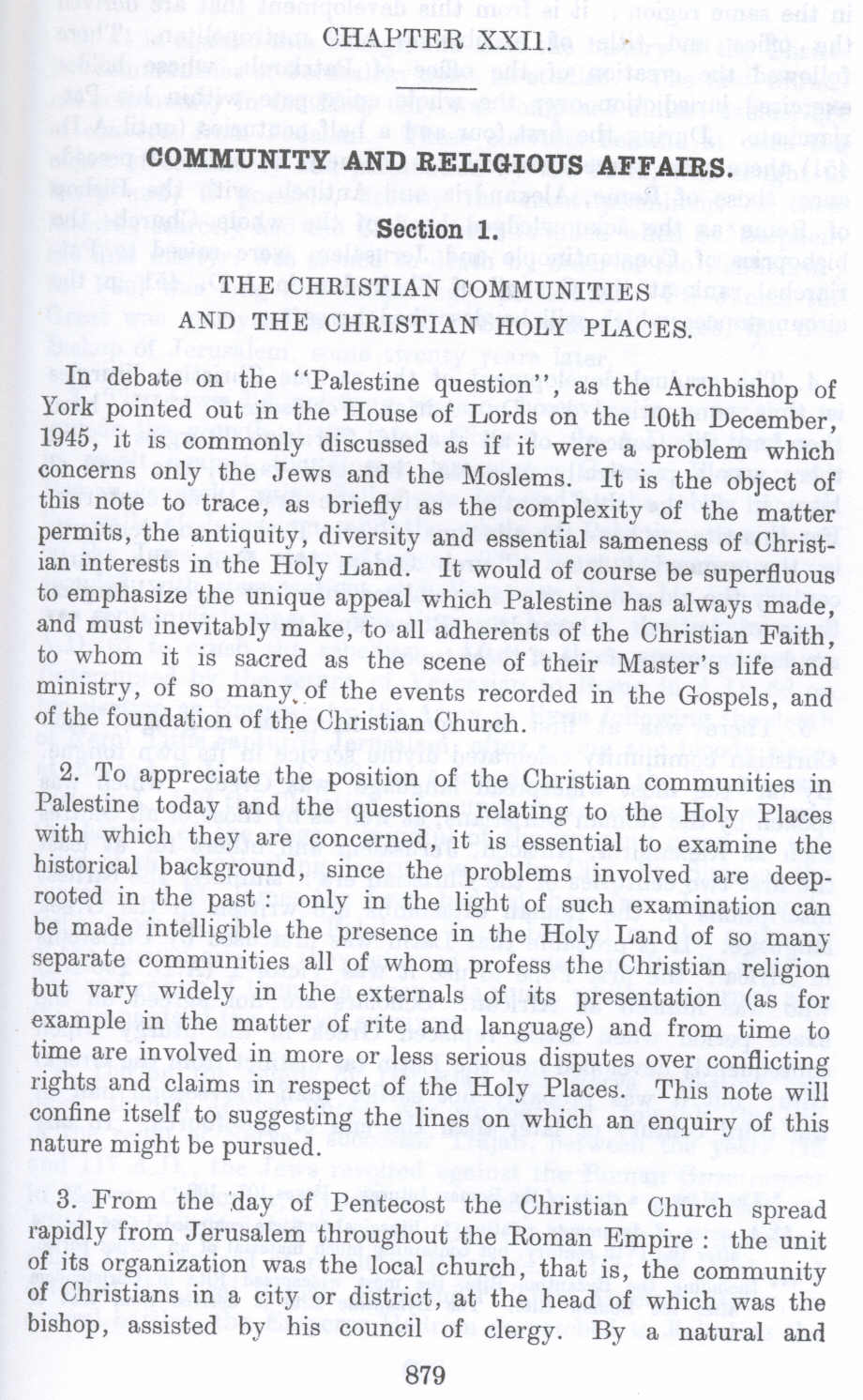| Prev | Next |  |
| Prev | Next |
| PalestineRemembered | About Us | Oral History | العربية | |
| Pictures | Zionist FAQs | Haavara | Maps | |
| Search |
| Camps |
| Districts |
| Acre |
| Baysan |
| Beersheba |
| Bethlehem |
| Gaza |
| Haifa |
| Hebron |
| Jaffa |
| Jericho |
| Jerusalem |
| Jinin |
| Nablus |
| Nazareth |
| Ramallah |
| al-Ramla |
| Safad |
| Tiberias |
| Tulkarm |
| Donate |
| Contact |
| Profile |
| Videos |
Christian Community And Christian Holy Places in Palestine before 1948 (Nakba), British Mandate: A Survey of Palestine: Volume II - Page 879. Chapter XXII: Community And Religious Affairs: Section 1 |
Disclaimer
The above documents, article, interviews, movies, podcasts, or stories reflects solely the research and opinions of its authors. PalestineRemembered.com makes its best effort to validate its contents.


Post Your Comment
*It should be NOTED that your email address won't be shared, and all communications between members will be routed via the website's mail server.
COMMUNITY AND RELIGIOUS AFFAIRS.
Section 1.
THE CHRISTIAN COMMUNITIES AND THE CHRISTIAN HOLY PLACES.
In debate on the "Palestine question'', as the Archbishop of York pointed out in the House of Lords on the 10th December, 1945, it is commonly discussed as if it were a problem which concerns only the Jews and the Moslems, It is the object of this note to trace, as briefly as the complexity of the matter permits, the antiquity, diversity and essential sameness of Christian interests in the Holy Land. It would of course be superfluous to emphasize the unique appeal which Palestine has always made, and must inevitably make, to all adherents of the Christian Faith, to whom it is sacred as the scene of their Master's life and ministry, of so many. of the events recorded in the Gospels, and of The foundation of the Christian Church.
2. To appreciate the position of the Christian communities in Palestine today and the questions relating to the Holy Places with which they are concerned, it is essential to examine the historical background, since the problems involved are deeprooted in the past : only in the light of such examination can be made intelligible the presence in the Holy Land of so many separate communities all of whom profess the Christian religion but vary widely in the externals of its presentation (as for example in the matter of rite and language) and from time to time are involved in more or less serious disputes over conflicting rights and claims in respect of the Holy Places. This note will confine itself to suggesting the lines on which an enquiry of this nature might be pursued.
3. From the day of Pentecost the Christian Church spread rapidly from Jerusalem throughout the Roman Empire : the unit of its organization was the local church, that is, the community of Christians in a city or district, at the head of which was the bishop, assisted by his council of clergy. By a natural and
879